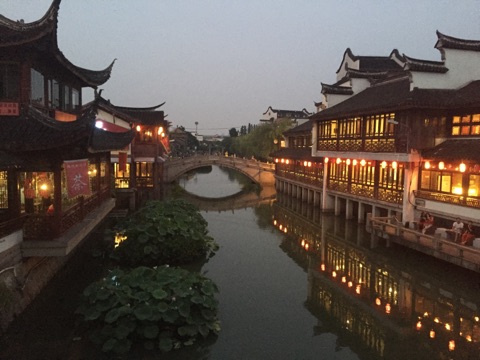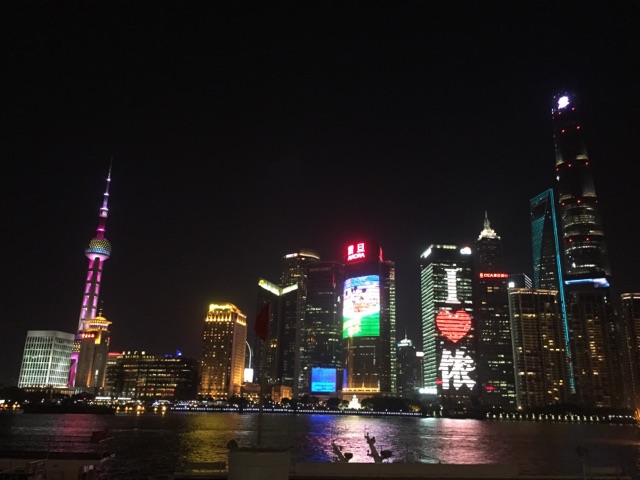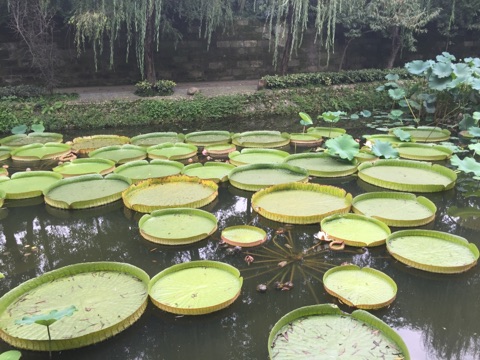By: Marla Borkson

Thanks to the generosity of Washington University School of Law and the Harris Institute’s Dagen-Legomsky Fellowship, I was able to secure a position with the U.S. Consulate General in Shanghai, China this summer.
First established in 1844, the U.S. Consulate General in Shanghai reopened in 1980 after the United States resumed diplomatic ties with the People’s Republic of China. According to the Consulate, “today, Shanghai’s strategic location, solid infrastructure, skilled workforce, university and media concentration, pro-business government, and outward orientation make it a regional center, a frequent stop for official visitors, and a prime location for U.S. Government agencies.” The main Consulate compound sits in the former French Concession of Shanghai and currently has three offices in the Shanghai area.

My work this summer was centered around my position with the Economic-Political Section of the Consulate. Here, trained Foreign Service Officers with specialized language skills go into the field and meet with Chinese businesses, government officials, and the population at large to keep a pulse on the developing political and economic environment in China. Each officer has a specialized portfolio and as an intern, I worked mainly on law, tax, commerce, and industry. I was able to attend several meetings, from local Shanghai think tanks to rural constituents in faraway provinces. I was also able to travel throughout Shanghai, Zhejiang and Jiangsu, all areas under the Shanghai Consulate’s jurisdiction. These meetings allowed me to understand China from a local, diverse perspective and taught me a lot about Chinese culture, business, and Chinese law.
In addition to learning more about substantive issues in China, I assisted the Consulate in facilitating the high-profile visits of U.S. President Barack Obama, U.S. Supreme Court Justice Samuel Alito, and National Security Advisor Susan Rice. These visits took an incredible amount of time, effort, and people to be successful. Through these visits I learned about diplomacy, policy, and the various American businesses and interests throughout Shanghai.
![Casa Rosada (Argentina Presidency of the Nation) [CC BY 2.5 ar (http://creativecommons.org/licenses/by/2.5/ar/deed.en)], via Wikimedia Commons World Leaders at the 2016 G20 Summit (September 4 and Sept 5, 2016) in Hangzhou (China). (Source; Casa Rosada (Argentina Presidency of the Nation) [CC BY 2.5 ar (http://creativecommons.org/licenses/by/2.5/ar/deed.en)], via Wikimedia Commons)](http://sites.law.wustl.edu/WashULaw/harris-lexlata/wp-content/uploads/sites/25/2016/10/G20_2016_leaders-needs-source-and-attri-for-use.jpg)
World Leaders at the 2016 G20 Summit (September 4-5, 2016) in Hangzhou, China. (Source: Casa Rosada (Argentina Presidency of the Nation) [CC BY 2.5 ar], via Wikimedia Commons)
The special part of my job this summer was thanks to timing. I arrived in Shanghai in mid-July and the G20 Summit was held at the beginning of September. This was the first time China hosted the Summit and the main venue was in the Shanghai Consular district in Hangzhou, Zhejiang. Much of my work consisted of G20 planning and preparation. The U.S. Consulate in Shanghai and other American diplomatic posts across China (including the U.S. Embassy in Beijing) were charged with coordinating the logistics and planning for the United States’ participation in the G20 Summit, including the participation of President Obama, Secretary of State John Kerry, and a number of other Cabinet-level government officials. I supported these efforts in several ways such as credentials, diplomatic notes, and reports. In addition, I was able to work with the Chinese Ministry of Foreign Affairs on several projects.

Working with the State Department was a unique opportunity to gain insight into the U.S. Government abroad and gave me access to a diverse set of people and topics. Planning a major multinational conference, supporting several high-level officials, and reporting on Chinese law and economics are all exceptional experiences the State Department offers. Being able to receive this type of training and international experience is invaluable to aspiring international lawyers.
